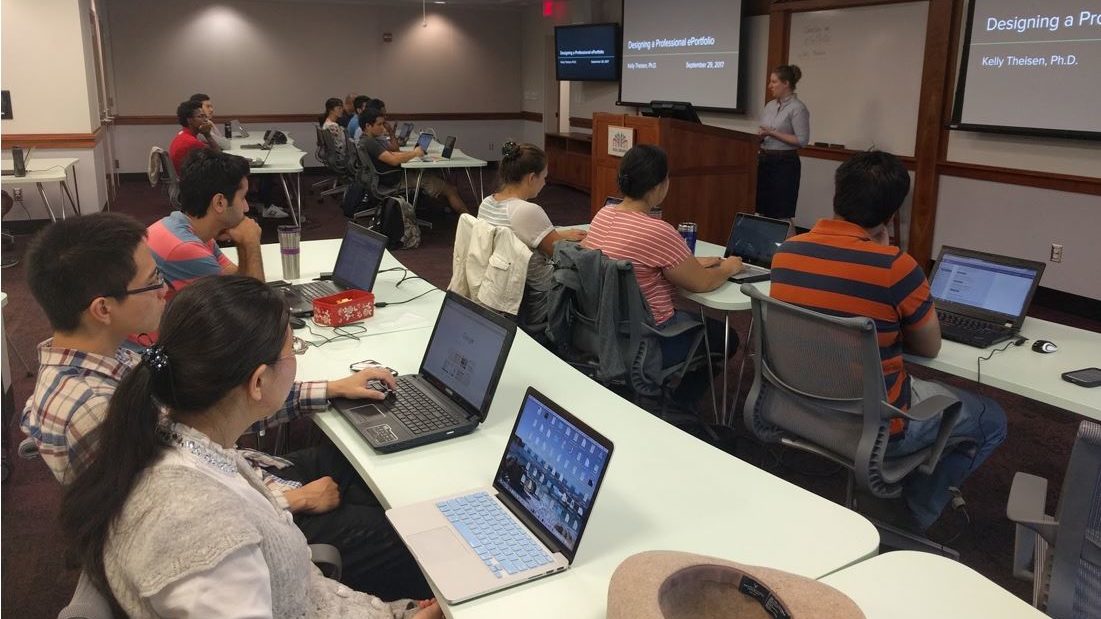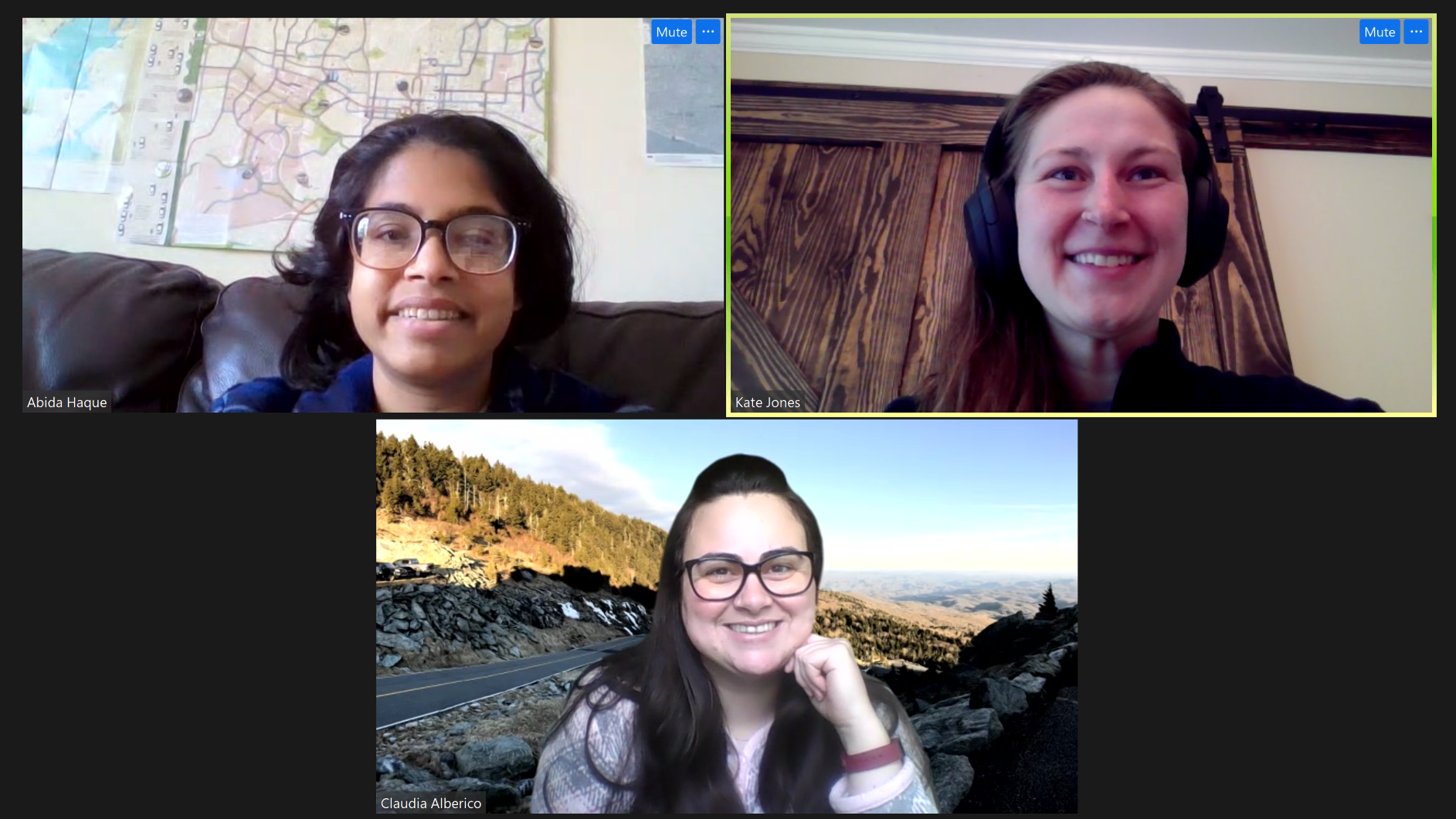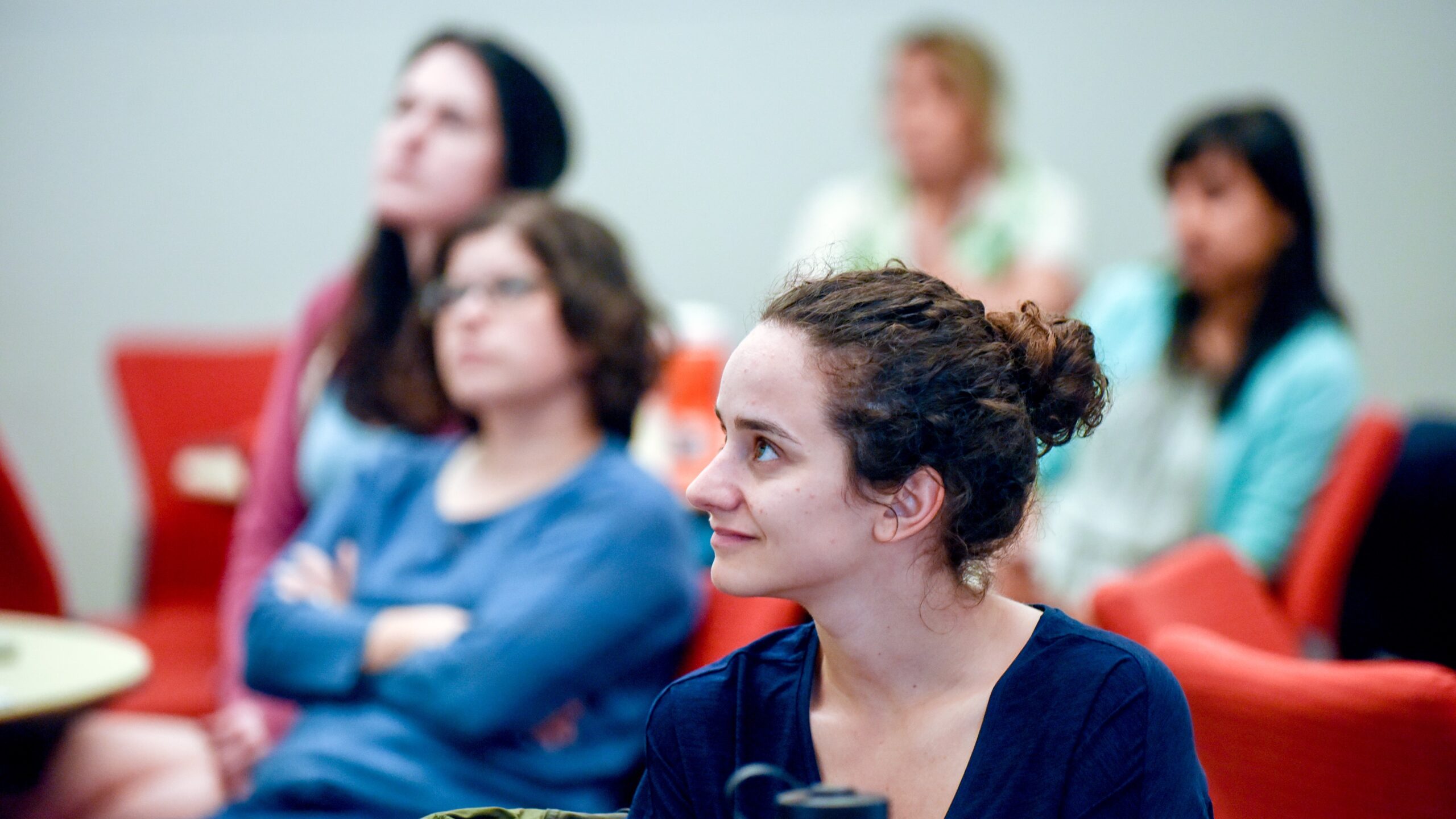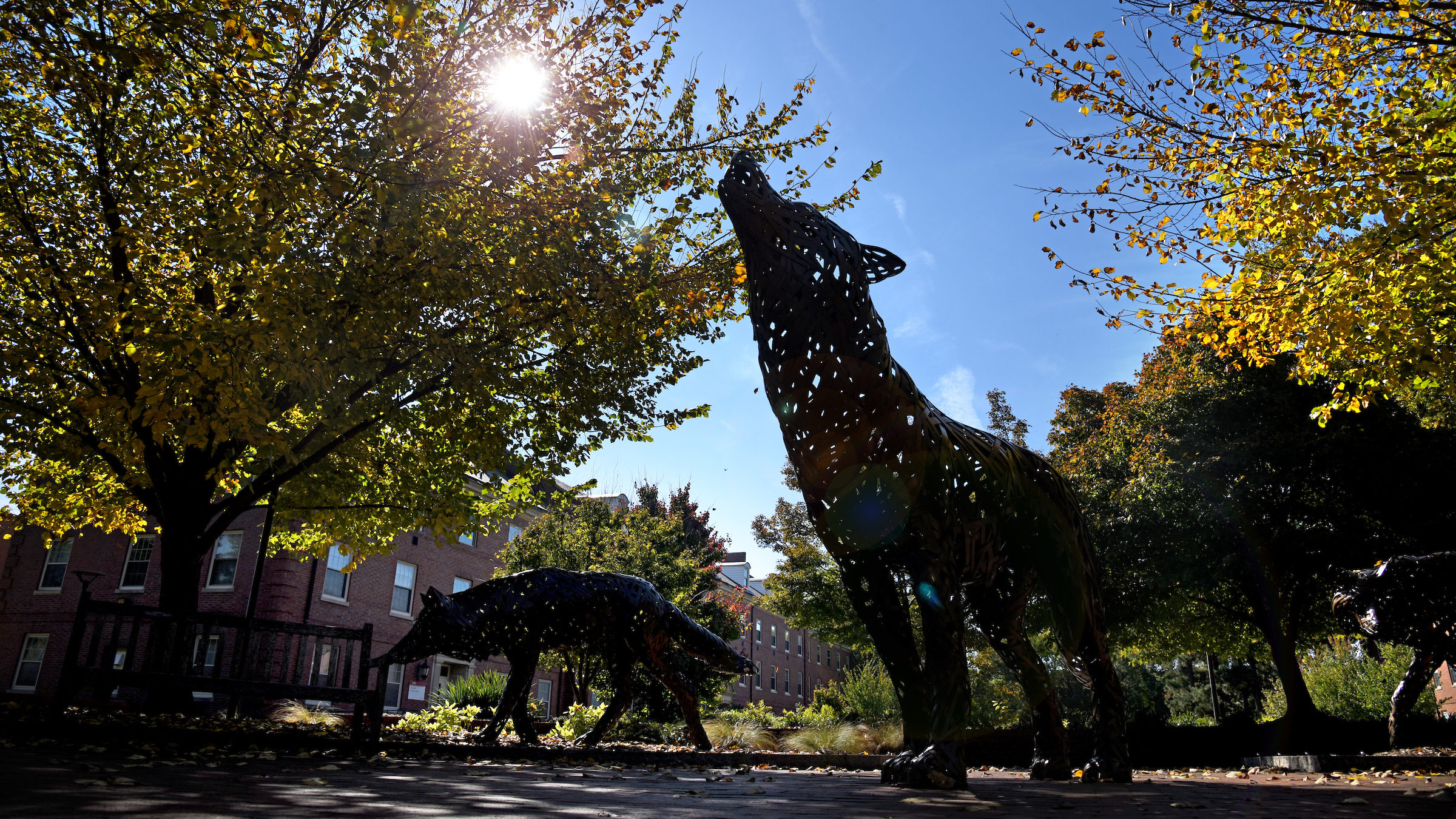NC State postdocs and graduate students, what if I told you there was a program available on campus that would:
- Allow you to get hands on teaching experience and practice in a friendly setting,
- Share your knowledge and expertise with your peers,
- Provide you the ability to later record your presentation/workshop to use in a digital portfolio to demonstrate your instructional ability,
- AND would PAY you to get this experience?
Sound too good to be true? Well, it’s not…rather it’s the NC State University Libraries’ Peer Scholars Program. Now entering its third year, Peer Scholars provides a platform for graduate students and postdocs with particular expertise or passions to lead a workshop or seminar for their peers on some topic of interest to them.
Peers Scholars: Tapping into the Pack’s Expertise
Over 30 individuals have participated in Peer Scholars since its inception in 2016 and the program is looking to grow its offerings. Topics presented through Peer Scholars have ranged from Creating a Professional Portfolio and Academic Posters 101 to
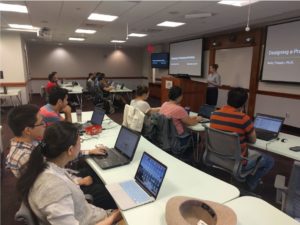
MATLAByrinth and Strategies for Organizing and Writing a Literature Review.
The Program will pay presenters $300 for a workshop, which typically lasts 1.5 hours and has a hands-on component or $150 for a lecture-style talk. If you are thinking about proposing content for Peer Scholars, think about what skills or topics you can speak to, what help you can provide your fellow scholars, and what you are passionate about.
Peer Scholars grew out of a realization that NC State has a lot of untapped expertise on campus and that trainees are often on the forefront of rapidly changing technologies and skillsets. Who better to provide instruction in the latest approach to data visualization, analysis, or communication best practices? The Libraries sees Peer Scholars programming as a value-add to the NC State community.
Presenters gain valuable training experience as well
Peer Scholars also benefits the presenters themselves as it seeks to enhance trainee success in instruction and allows them to learn how to utilize the latest in instructional technology available at the libraries, including the Creativity Studio and the Teaching and Visualization Lab at Hunt Library. A team of five NC State librarians work with the Peer Scholars program, helping scholars prepare the content and delivery of their material. They will consult with you on a potential Peer Scholars presentation or workshop idea and help you determine engaging ways to present the material.
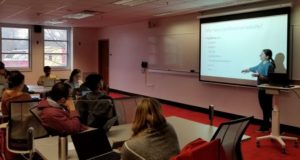
“The Peer Scholars Program is a great transition into teaching of the professional level where I can develop and teach my own materials,” says Dr. Dianna Francisco, PhD Candidate in Atmospheric Science when developed Creating a Professional Portfolio (Currently: Postdoc at CIMMS, University of Oklahoma).
“Because I am teaching peers, it is also a friendly environment and has allowed me to practice more advanced communication and teaching techniques compared to techniques I use with my freshman students…”
“I’ve gained confidence in my teaching skills and have enjoyed helping other graduate students and postdocs develop their professional portfolios.”
The other great thing about participating in Peer Scholars is that it can be an iterative process – you can build off previous presentations and use the feedback from attendees to improve your content and delivery. Going through this process of using attendee/student feedback to improve workshop/lecture delivery is a useful learning experience that would look great on a future teaching statement.
Plus, Peer Scholars will pay you AGAIN to give the course a second, or third, time. And, if your presentation goes well the first time, they will offer you the option of having your workshop/lecture recorded (and pay you, AGAIN). This recorded demonstration of your teaching ability would be great to link to in your resume/CV and could be a key differentiator on a tight academic job market.
Worried about leading a Peer Scholars program? The Libraries team is here to help
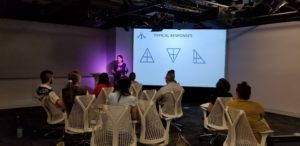
And don’t worry if you are nervous about leading a Peer Scholars program. The team at the Libraries will help get you prepared. A graduate student in Chemical & Biomolecular Engineering, Amrutha Raghu, was a bit nervous about teaching her workshop series on using MATLAB (MATLAByrinth) but knew working with MATLAB was an important skill and that other students and postdocs at NC State could gain useful insights from her workshop. Through her series of 4 workshops, she gained confidence in her ability to teach the material, even revising the material to meet the needs she observed while teaching, and coming back the next semester to teach a second series of MATLAByrinth.
“Participation in the Peer Scholars Program led directly to being offered a Graduate Teaching Assistantship in my department. I am thankful to the Libraries for my first teaching opportunity and support in organizing these efforts!”
- Amrutha Raghu, MS in Chemical & Biomolecular Engineering (2018), Developer of MATLAByrinth
“As a postdoc, conducting Peer Scholars workshops gave me valuable teaching experience that I was able to include in my applications to faculty positions and discuss in job interviews. The Peer Scholars Program also gave me the opportunity to develop materials that I’ll be using in the courses that I’ll be teaching as a faculty member. It’s as if I was able to teach a short version of these courses first before having to develop an entire semester-long course.”
- Melissa Whatley, Ph.D., former Belk Center for Community College Leadership and Research postdoctoral scholar, now an assistant professor at SIT Graduate Institute
Also, you don’t need to be an expert in a topic to lead a Peer Scholars workshop. Quite a few of them have focused on skills and tips that trainees have learned themselves outside their main research or scholarly pursuits, including using Twitter to advance your academic career and how to build an effective Academic Poster to present at conferences. A diversity of topics are also represented at Peer Scholars with recent workshops focused on Literature Reviews, Storytelling with Data, and Using the Power of Three to Communicate. A digital humanities workshop is planned for the fall.
Peer Scholars is a unique, value-add to your training at NC State. The practical experience you gain in delivering effective instruction and communicating clearly are useful for careers in academia or industry. For many trainees whose graduate and postdoctoral work is heavily focused on research, Peer Scholars provides a means to get critical teaching experience that can set you apart on the job market. The fact that the Libraries will compensate you for an activity that is so helpful for your professional development makes the decision of participating in Peer Scholars an easy one – Just Do It!
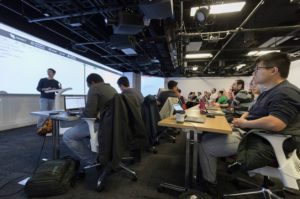
For more info, see the Peer Scholars website or email them.
Note: Due to restrictions on the way in which payment for Peer Scholars workshops functions, students who are not American citizens may only become instructors if they hold a J1 visa.
The Peer Scholars Program is Supported by the Following NC State Libraries Staff:
- Shaun Bennett, Research Librarian for Business, Education, and Data Literacy
- Alexa Carter, Research Librarian for Physical Sciences and Graduate Services
- Mira Waller, Department Head, Research Engagement
- Danica Lewis, Collections & Research Librarian for Life Sciences
- Shelby Hallman, Research Librarian for Engineering and Entrepreneurship
- Mara Matthews, University Library Specialist
The Peer Scholars program began in 2016 with two librarians:
- Jennifer Garrett, Director of Talent Management
- Hannah Rainey, Lead Librarian for Academic Technology
Have ideas for a resource to highlight in our next blog?
Let us know your ideas here.
- Categories:
